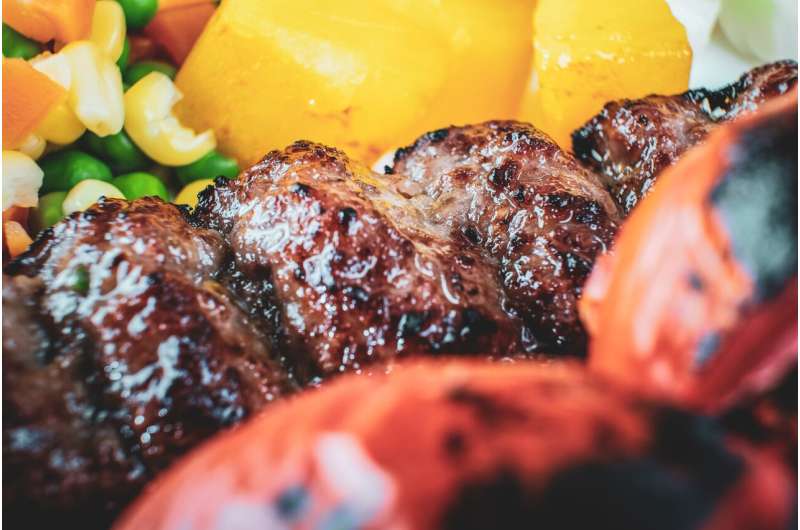High fat diets may over-activate destructive heart disease protein

Consumption of a high fat diet may be activating a response in the heart that is causing destructive growth and lead to greater risk of heart attacks, according to new research.
In a paper published in Biochemical and Biophysical Research Communications, researchers looked at the effect of feeding mice a high fat diet on oxidative stress levels on heart cells. The team from the University of Reading found that cells from the mice had twice the amount of oxidative stress, and led to heart cells being up to 1.8 times bigger due to cardiac hypertrophy which is associated with heart disease.
Named first author Dr. Sunbal Naureen Bhatti, from the University of Reading said:
"Our research shows one way in which a high fat diet can cause damage to the muscle cells that make up our hearts. It appears that a switch happens at a cellular level when the mice were fed on a high fat regimen which causes a normally harmless protein, Nox2, to become overactive. The precise nature of how the Nox2 protein goes onto cause oxidative damage and set off destructive hypertrophy is still being researched.
"We are really just scratching the surface of how the protein Nox2 responds to diets, but our research clearly demonstrates that high fat diets has the potential to cause significant damage to the heart."
The researchers focused on a key protein Nox2 which believed to be associated with increasing oxidative stress in the heart. The study found that the mice fed a high fat diet had twice the amount of Nox2 activity, which also led to a similar amount of reactive oxygen species (ROS), a free radical that is associated with pathological damage of the body.
To check whether Nox2 was involved in causing the cardiac stress, the team compared the results with mice bred specifically to 'knock out' Nox2, stopping the protein from activating at a cellular level. The 'knock out' mice were also fed a high fat diet, but showed little or none of the same raised levels of oxidative stress.
In addition, the team used three experimental treatments which are known to reduce Nox2-related ROS production, and found that all three showed some promise in reducing the effect of ROS in damaging the mice hearts.
The mice that were fed high fat diets received 45% of their calorie consumption from fat, 20% from protein and 35% carbohydrate.
More information: Sunbal N. Bhatti et al, Nox2 dependent redox-regulation of Akt and ERK1/2 to promote left ventricular hypertrophy in dietary obesity of mice, Biochemical and Biophysical Research Communications (2020). DOI: 10.1016/j.bbrc.2020.05.162




















